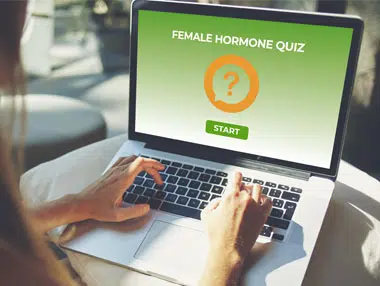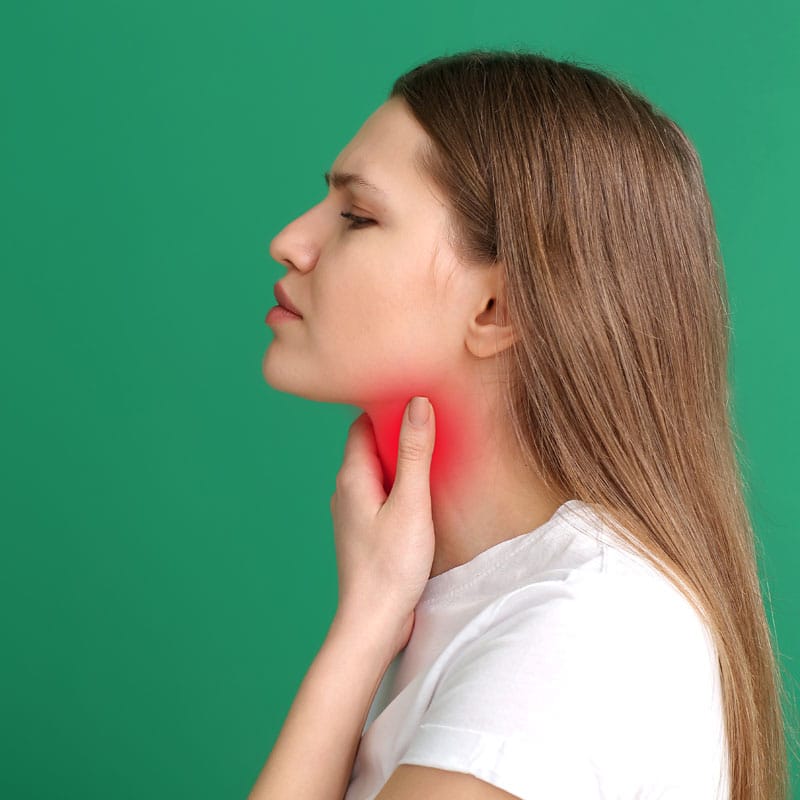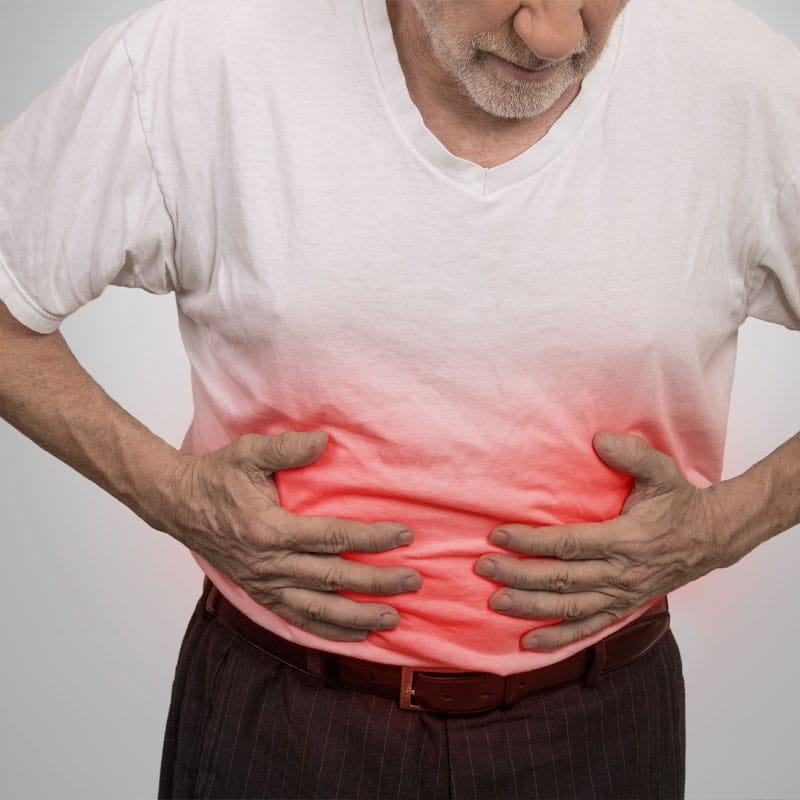index
Women must navigate varying hormonal imbalances and changes throughout their lives. From puberty to pregnancy, perimenopause, and menopause, fluctuations in hormones never stop. Hormones are used throughout the body to control a variety of functions. When your hormones become imbalanced, it can cause a plethora of problems. Estrogen dominance is a hormone imbalance that occurs when the body produces too much estrogen compared to the amount of progesterone in the body. Estrogen dominance may occur at any age; however, it is most common during perimenopause. During perimenopause, hormone levels can increase and decrease throughout the day. These fluctuations cause a number of unpleasant symptoms of estrogen dominance, including hot flashes, irritability, bloating, anxiety, hair loss, and night sweats.

Symptoms of Estrogen Dominance
High estrogen symptoms may result in a number of health conditions such as-
- Mood Swings
A mood swing is defined as an abrupt change in your mood. Your mood can shift suddenly from feelings of euphoria to feelings of depression and then to another emotion. If you are experiencing various and dramatic mood swings with no identifiable cause, you may be experiencing estrogen dominance.
Too much estrogen or too little progesterone in the body can lead to irritability, anxiety, depression, and exaggerated PMS symptoms. Estrogen dominance affects the delicate chemical balance of neurotransmitters in your brain, especially serotonin and GABA, which impact mood. When these neurotransmitters become imbalanced, mood swings can occur.

- Sleep Issues
The U.S. Department of Health and Human Services Women’s Health Division reports that one in four women have sleep problems like difficulty falling asleep, staying asleep, or both. Researchers have discovered that one of the reasons women experience insomnia is hormone imbalances. Two key hormones that cause insomnia and other sleep problems are estrogen and progesterone.
Estrogen has been shown to stimulate the nervous system. Therefore, when there is too much estrogen in the body, you can experience insomnia. Estrogen can also interfere with the body’s ability to produce melatonin. Melatonin is the naturally occurring chemical that causes you to become sleepy when it becomes dark.
Progesterone acts as a natural sedative and promotes healthy sleep cycles. A deficiency in this hormone can affect the quality of your sleep.

- Weight Gain
Estrogen dominance causes you to gain weight in your belly, thighs, hips, and butt. As you gain weight, the number of fat cells in the body increase. Fat cells then produce estrogen, creating a vicious cycle of weight gain and increased estrogen levels. As the body becomes estrogen dominant, your metabolism slows, resulting in excess weight gain. Your abdominal tissues begin retaining more water, resulting in bloating. Insulin is unnaturally released, resulting in constant hunger along with craving sweets.
If your estrogen dominance is left untreated, it can increase your risk of a variety of conditions such as heart disease, thyroid issues, metabolic syndrome, and diabetes. Furthermore, your risk of cancer and dementia can increase affecting your health and longevity.
- Memory Problems
Experts have determined that hormones impact the health of the brain. When you experience estrogen dominance, you may begin to feel foggy and may have increased difficulty recalling and remembering people, events, places, or things. Many experts believe estrogen impacts neurotransmitters, resulting in a host of memory issues.
In the beginning, women may experience mild forgetfulness; however, with time, the memory fog can become severe. Women experiencing estrogen dominance may be misdiagnosed with dementia or the early stages of Alzheimer’s disease.

- Low Sex Drive
Low libido is defined as a loss of sexual thoughts and urges as well as a decreased desire for sexual intimacy. A dwindling sex drive can be caused by a number of issues, including a hormone imbalance. Low libido is typically experienced between the ages of 40 and 55. During this time, hormone levels begin to decline, resulting in an imbalance of your sex hormones. In order to improve your sexual well-being, your estrogen levels and progesterone levels must be balanced.
Estrogen dominance causes a variety of sexual issues, including vaginal dryness, loss of libido, and sexual dysfunction. Excess estrogen can also cause heavy menstrual periods, fibrocystic breasts, fatigue, depression, and water retention. Each of these symptoms can cause reduced sexual desire.
- Fertility Issues
Estrogen dominance can cause anovulatory cycles (absence of ovulation). When a woman is not ovulating or not ovulating regularly, her ability to become pregnant is greatly reduced. Women who are overweight or obese are at an increased risk of fertility issues because increased fat cells increase estrogen production. Excess estrogen causes no egg to be released and acts as a type of natural birth control. When ovulation does not occur, no egg is released resulting in infertility.
Progesterone plays a very important role in preparing the uterus for a healthy pregnancy. Low levels of this gestational hormone may result in trouble getting pregnant or increase your risk of a miscarriage.

Hormone Self Assessment Quiz
Here are a couple of hormone self-assessment questionnaires that can help evaluate your hormone levels. There is no substitute for consulting with your healthcare practitioner.
Female Estrogen Dominance Quiz
Dealing with mood swings, low libido, fatigue, weight gain, or Insomnia? Try our 5 minute Female Estrogen Dominance Quiz

Female Hormone Quiz
Dealing with hot flashes, PMS, low libido, mood swings, headaches, anxiety, or unexplained weight gain? Try our comprehensive Female Hormone Quiz

Need Help Balancing Your Hormones?
Hormones, including estrogen, are chemicals that impact how your organs and cells function. Estrogen dominance begins overstimulating the body and the brain. Some common symptoms of high estrogen include fatigue, weight gain, mood swings, low libido or insomnia. Our integrative women’s health practitioners understand that there are many things that can affect the body’s ability to make and regulate hormones. They will work with you to help improve your health through diet, exercise, stress reduction, natural remedies, and hormone replacement therapy when necessary.
















